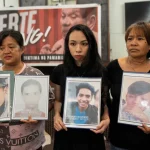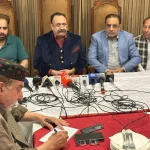ISLAMABAD: Between October 10 and November 15, electoral tribunals nationwide settled 20 additional election petitions, increasing the total to 60, or about 17% of the 350 conflicts.
Seven of the 23 tribunals have not yet rendered a decision on any petitions, per the most recent tribunal performance report from the Free and Fair Election Network (Fafen).
Significant differences also exist between the provinces, with tribunals in Punjab, Sindh, and Khyber Pakhtunkhwa trailing those in Balochistan, despite a minor improvement in the speed of rulings over the previous month.
The three tribunals in Balochistan are the most effective; they have resolved 30 of 51 issues (58.8%). In comparison, the five tribunals in Sindh have handled only 12 out of 83 petitions (14.5%), while the six tribunals in KP have only decided eight out of 42 cases (19%).
Just 10 out of 155 cases (6.5%) have been settled in Punjab, which experienced delays in tribunal setup as a result of jurisdictional disputes between the Lahore High Court and the Election Commission of Pakistan.
Despite being officially notified, four of Punjab’s eight tribunals, which are made up of retired judges, have not yet started proceedings.
The Islamabad Capital Territory tribunal is now awaiting the ECP’s processing of transfer applications for three petitions submitted by PML-N lawmakers who were proclaimed the capital’s winners.
Only nine of the 60 petitions that have been resolved so far pertain to seats in the National Assembly, whereas 51 of them deal with provincial assembly constituencies.
Of the provincial cases, 29 petitions have been settled in Balochistan, 9 in Sindh, 7 in Punjab, and 6 in KP. In Punjab and Sindh, three decisions apiece, two in KP, and one in Balochistan were made for NA constituencies.
Just 9% of the 111 challenges involving National Assembly constituencies have been settled, compared to 29% of the 239 petitions pertaining to provincial seats.
Out of the 60 petitions that were decided, three were approved, 56 were dismissed, and one was abated because the petitioner had passed away.
Five were dismissed for non-prosecution, eight were withdrawn by petitioners, and 22 were determined to be non-maintainable. 16 more were turned down following thorough trials. Fafen has not yet determined why five applications were dismissed since judgment copies were not available.
Every NA petition that was resolved was rejected.
The Balochistan Assembly constituencies are covered by the three petitions that tribunals have accepted: PB-44 Quetta-VII, PB-45 Quetta-VIII, and PB-36 Kalat. Re-elections were mandated by tribunals in some areas of these constituencies.
A National Party (NP) candidate and two Jamiat Ulema-i-Islam Pakistan (JUI-P) candidates filed one of these accepted cases, contesting two PPP and one Balochistan Awami Party (BAP) wins.
After the death of the petitioner, a PTI-backed independent candidate who had challenged the victory of a Muttahida Qaumi Movement Pakistan (MQM-P) candidate, a petition on PS-97 Karachi East-I was withdrawn.
Thirteen PPP candidates, ten unaffiliated independent candidates, six PTI-backed independents, five JUI-P candidates, and four PML-N candidates filed among the cases that were dismissed.
Two each from Jamaat-i-Islami and Pashtoonkhwa Milli Awami Party, three each from NP and Awami National Party (ANP), and one each from BAP, BNP, BNP-A, Grand Democratic Alliance, Hazara Democratic Party, Jamhoori Watan Party, Tehreek-i-Labbaik Pakistan, and Khadameen-i-Sindh were among the others.
The majority of petitions targeted PML-N winners (14), then independents supported by the PTI (13) and the PPP (10). JUI-P (six), MQM-P (five), unaffiliated independent candidates (three), NP (2), and one each from BNP, BNP-A, and BAP were among the other responders.








